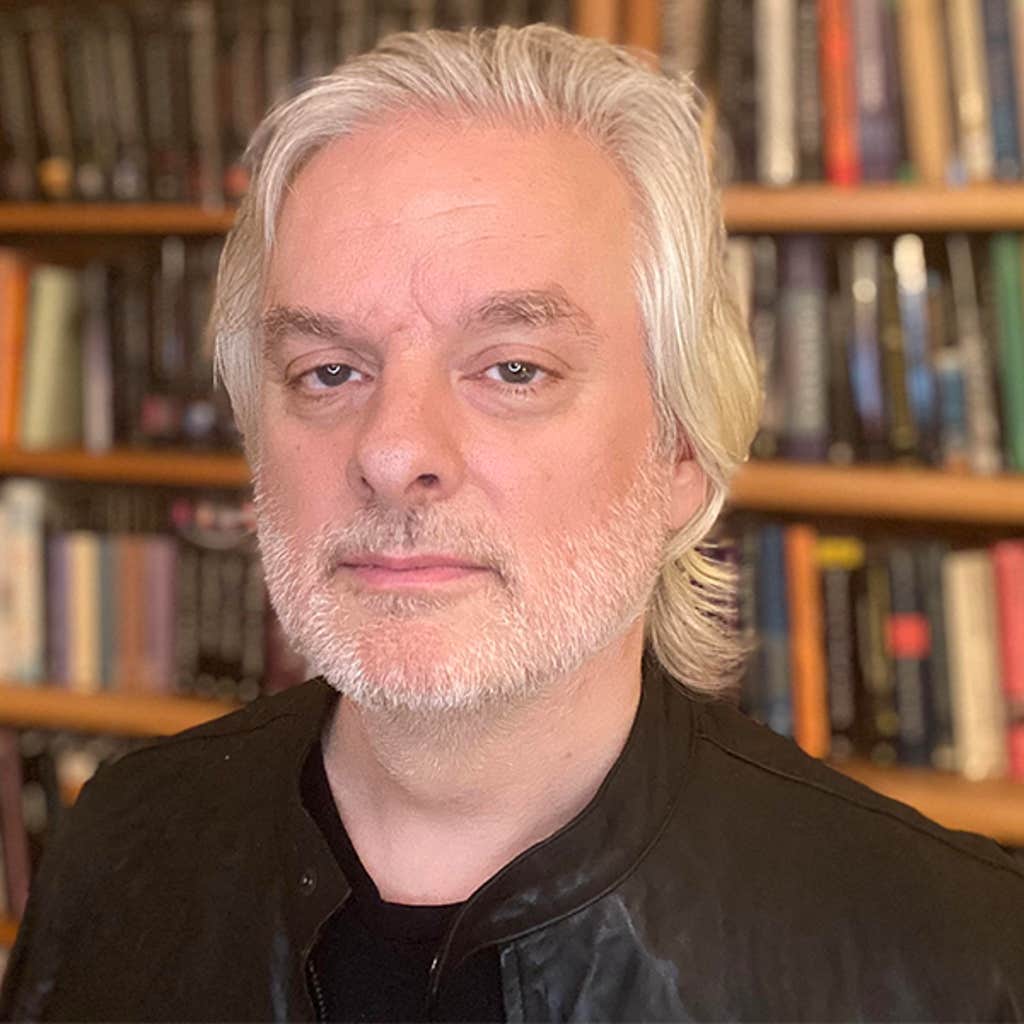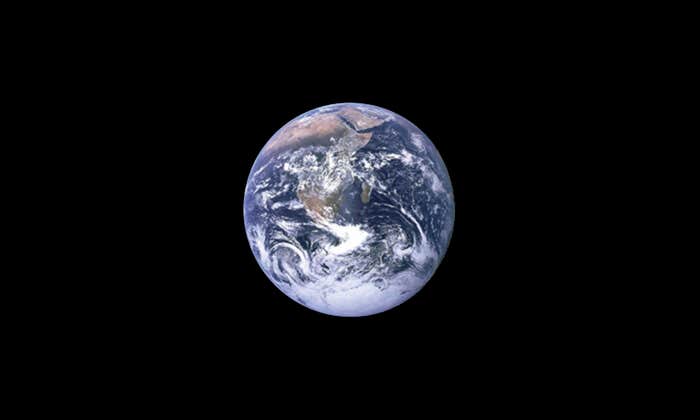Even if you’ve never seen the original Matrix movie, you probably know the central premise: Our hero, a computer programmer named Neo, discovers that reality is not as it seems. What he understood to be his world was a simulation; he eventually awakes in a liquid-filled pod, where his body had been languishing. That, of course, is Hollywood. But some scientists and philosophers take the “simulation hypothesis” seriously.
One of them is David Chalmers, a philosopher at New York University and co-director of the Center for Mind, Brain, and Consciousness. Chalmers is known for formulating the “hard problem” of consciousness, which asks how seemingly immaterial experiences arise out of the material brain. In his new book, Reality+, Chalmers takes a deep dive into virtual worlds. He argues, for starters, that virtual worlds can be every bit as real as physical worlds, and that virtual lives can be as meaningful as physical lives. And yes, he’s willing to entertain the notion that the Matrix might be more than pure fantasy. “The world we’re living in could be a virtual world,” he writes. “I’m not saying it is. But it’s a possibility we can’t rule out.” I caught up with Chalmers recently for a virtual interview.

Let’s start with the simulation hypothesis itself. It’s a provocative idea—but is it just an exercise for philosophers, or do you think we really might be living in a simulation?
I think it’s possible. I don’t rule out that we’re in a simulation—and I think we can’t rule out that we’re in a simulation. So it’s at least a serious theoretical possibility that we’re in a simulation. I wouldn’t want to say it’s necessarily likely—it’s hard to put a probability onto it—but it’s a hypothesis I take seriously. That said, I am to some extent thinking about this as a philosopher; I’m not putting it forward as a scientific hypothesis right now. It’s a thought experiment for how reality could be. At the same time, it connects to some pretty practical ideas. In the coming years we’re going to be spending a whole lot of time in virtual worlds, and that raises a lot of important questions. Can you live a proper life, a meaningful life, in a virtual world? Will that just be illusion or escapism?
What difference would it make to live in a simulated world? Would it make life less meaningful? Or would it be business as usual?
My own view is closer to business as usual. If it turns out we live in a simulation, that’s really interesting. That might be shocking, but after a while, life would go back to normal, maybe with a few changes. But basically we could still continue our lives. We could still continue our relationships. We could still be continuing our activities. If it turns out that we’re in a perfect simulation, then some people say that would mean, “Oh, my God, all this is meaningless; all this is an illusion.” That’s the view I want to combat. I want to say, “No, even if we’re in a perfect simulation, this is not an illusion; I’m still in a perfectly real world; the conversation I’m having with you right now is a perfectly real conversation. Everything is just as meaningful as it was before.”
If we discovered we’re in a simulation, that would change some things. We might want to escape the simulation and get beyond it. At the very least, maybe we’d want to try and communicate with the simulators. But I think that simulation or no simulation, life is still perfectly meaningful. Which for me, as a philosopher, is interesting, because this can teach you lessons about what it is that is most meaningful in life. Maybe it’s not what the world is made of, but more like your conscious experiences and your relationships with other people, all of which can be present in a simulation just as much as in ordinary reality.
A simulated brain can have the same kind of consciousness as the original brain.
You say you’re putting it forward more as a philosophical hypothesis than a scientific one—does that mean you don’t have to worry about evidence? Because it’s not obvious what sorts of observations might support, or refute, the idea that we live in a simulation.
I think there are versions of the simulation hypothesis that are testable. Maybe if we live in a glitchy simulation that involves approximations, we could test our physics and it would turn out that the laws of physics are only true to some degree of approximation; that might give us evidence that we’re living in a glitchy, approximate simulation. Or if the simulators communicate with us under certain conditions; we could formulate hypotheses about that and see if it happens. But the extreme case of the simulation hypothesis is the “perfect simulation hypothesis,” where the simulation simulates physics perfectly, and things evolve just as they would in the corresponding physical world. Perfect simulations are, almost by definition, indistinguishable from the realities that they simulate. And that’s got the consequence that no evidence could ever prove that you’re not in a perfect simulation—because any evidence could itself be simulated.
What about the issue of computational power? Simulating a universe might need a computer the size of the universe.
Yeah, at least if the universe is finite. It seems rather doubtful that a finite universe could simulate a copy of itself. But I don’t think we need to think about universes simulating copies of themselves. Rather, the best way to think about the simulation hypothesis is that a more complex universe can simulate a simpler universe. So maybe an infinite universe can simulate a finite universe; or a universe with a trillion bits of complexity can simulate a bunch of universes with a billion bits of complexity. We can create simulated universes ourselves, right now—they’re just very simple universes, running very simple laws of physics.
But even if you could simulate a universe, how would you simulate the minds of creatures in those universes? As you know, scholars constantly argue about how minds work. Does the effort to simulate minds depend on minds being computer-like?
It’s very much an open, controversial question in the philosophy of consciousness, whether a simulation of a human brain would have the same kind of consciousness as the original brain. Some people think the simulation would not be conscious at all. My own view is that a simulation of a human brain would have the same kind of mind, the same kind of conscious states, as the brain it’s simulating. One way to get there is by a thought experiment where we replace the neurons in the human brain one at a time by silicon chips. At the end of this process, we have a fully silicon brain that’s akin to a simulation of the original brain. As you go through this process, replacing the neurons one at a time by silicon chips—as long as the silicon chips fully duplicate the functionality of the neurons—then the most plausible outcome is not that consciousness fades away during this process, or that it suddenly disappears at a certain point, but rather that it’s preserved throughout. If that’s the case, then I think it becomes plausible that a simulated brain can and will have the same kind of consciousness as the original brain.
Our simulator might just be a teenage hacker in the next universe up.
In Reality+, you distinguish between “bio-sims,” who have a real body outside the simulation, and “pure sims,” whose entire existence is inside the simulation. I suppose Neo from the original Matrix movie would be an example of a bio-sim; he has a physical body that exists outside of the simulation, even though, at least initially, he lives his life inside the simulation. Can you say a bit more about the distinction between these two kinds of entities?
In the original Matrix movie, we had Neo and Trinity, who had biological brains that were plugged into the Matrix. The world they experienced was digital and simulated, but their brains were not; they were just biological. Compare them to the “agents” in the movie: Their brains are computational; their brains may well be part of the same computer that’s simulating the physical world. They have computational brains continuous with the computational Matrix. Neo is an impure sim because his mind is not simulated. But Agent Smith is a pure sim, in that his mind is part of the simulation. And these are two different versions of the simulation hypothesis. We could be bio-sims connected to the Matrix, or we could be pure sims whose minds are part of the Matrix. If you’re inclined to think that consciousness has to be biological, then, at least to play along, I would retreat to the bio-sim hypothesis, the hypothesis that you’re a brain connected to the Matrix. And then the fact that you’re conscious would maybe rule out the pure sim hypothesis, where your mind is stimulated; but it wouldn’t rule out the bio-sim hypothesis, where you’re biological but connected to the Matrix.
You ask if it would be OK to kill five sims to save one human—a variation of the famous trolley problem—and you conclude that it would not be OK. Why not?
My view is that what really matters morally is consciousness. If a being is conscious, then it deserves some kind of moral status: It shouldn’t be killed arbitrarily; it shouldn’t be made to suffer. Whereas if a being is not conscious, then its moral status is akin to something like a rock. It’s not something we need to take into account in our moral calculations. There still may be gradations among conscious beings: Maybe fish are conscious, but their consciousness is nowhere near as rich as ours. So maybe they count for something morally, but they count for less. But I think that a being who has a brain, whose brain is a simulation of a human brain, would be conscious in much the way we are. They’d have the same kind of conscious states that we do. So insofar as consciousness is what matters, I would say these beings matter just as much as non-simulated humans do. To say otherwise would be a kind of bio-chauvinism; to say, OK, you’ve got to be biological to really matter morally. I just don’t see why that should be true. These simulations will presumably be there eventually.
You write: “If the simulation hypothesis is true and we’re in a simulated world, then the creator of the simulation is our God.” And you say that although you’re an atheist, the simulation hypothesis has led you to take the idea of a God more seriously than any other argument. So is the simulation hypothesis a kind of religion?
I would say there are some structural analogies between the simulation hypothesis and the God hypothesis; but at the same time, there are limits on the analogies. The analogies are: If we’re in a simulation, and the simulator in some sense created this universe, at least the one we’re in, then they may be all-powerful, or at least very powerful with respect to what happens in this universe. They may be all-knowing; they may be in a position to know what’s going on in the universe. At least, that’s how it often is with respect to creators and the video-game-style simulations they create. Those are three standard properties of the traditional God—that they’re a creator, that they’re all-knowing, that they’re all-powerful. But another one is that God is all good; a creature of maximum benevolence and maximum wisdom. I don’t think there’s any particular reason to think that our simulator is going to be especially good or especially wise. It might just be a teenage hacker in the next universe up. For that reason, I think I’d be particularly hesitant to want to suggest forming a religion or an ethical belief system around the simulator.
I want to say, “No, even if we’re in a perfect simulation, this is not an illusion.”
Let’s say we live in a simulated universe. How do we know that universe isn’t itself a simulation created by beings in a “higher” universe? Could it be simulations all the way up?
There’s this old story in which the world sits on a turtle, and then the turtle is on another turtle—and then it’s turtles all the way down. We get the same question with a simulation. If we’re inside a simulation, is that simulation itself simulated? So we’re at level two. Could we be at level 40 or level 100 of simulations within simulations? Or could there just be an infinite series of simulations within simulations? I’m inclined to think that, at least on an intuitive picture, there has to be a base reality somewhere. And that base reality couldn’t itself be embedded in another universe, because then it wouldn’t be base reality. So if that’s the case, if there has to be a base reality, then it can’t be simulations all the way up; it’s got to stop somewhere. But maybe I’m wrong. Maybe there doesn’t need to be a base reality. Maybe there can just be an infinite hierarchy of universes within universes, within universes. And then, yeah, turtles all the way down. Simulations all the way up.
You write about The Matrix, The Truman Show, and the TV series Black Mirror. Are science-fiction writers always one step ahead of both the scientists and the philosophers?
Often, yeah. Computer simulations only really got seriously thought about in the mid-20th century because that’s when the first computers were developed. But even before then, you found ideas like the simulation hypothesis in some science-fiction writers who talked about “dream machines” that people were connected to. And there are all kinds of simulation-like scenarios. The first really impressive, full-scale version of the simulated universe hypothesis that I’ve seen is the novel Simulacron-3, by the writer Daniel Galouye in 1964, adapted by Rainer Werner Fassbinder as a movie for German TV called World on a Wire, in 1973, and which later served as the basis for The Thirteenth Floor [a 1999 movie by Josef Rusnak], The Matrix, and so on. The first strong instance of this I’ve seen from a philosopher came two years later, in 1966; the philosopher Jonathan Harrison wrote a story called “A Philosopher’s Nightmare,” all about a guy connected to a computer simulation.
So you might say, OK, the science-fiction writers were two years ahead. On the other hand, if you go back to ancient philosophy, we have the ancient Chinese philosopher Zhuangzi dreaming that he’s a butterfly, and asking if he might be a butterfly dreaming that he’s Zhuangzi. We had Plato talking about the cave and asking if what can be seen in the universe is like shadows on the cave wall. And all of these are early versions of the simulation hypothesis, without the computer.
As a philosopher, you think carefully about these issues. But at the end of the day, as a guy trying to hail a taxi in New York or buying a hot pretzel from the vendor on the corner, do you think that the world we experience is wildly different from what’s “really” there?
I think we already know that reality is very different from how it seems on the surface. Quantum mechanics tells us that, at an underlying level, the world has all kinds of bizarre properties; objects don’t have definite locations and can be in many places at once; the world is a giant wave function that occasionally seems to do special things when it’s measured; there’s no absolute space or absolute time. String theory tells us that maybe space and time themselves are emergent. So we already have very good reason to believe that, at the bottom level, the universe is very different from what we imagine. This is not to say we’re wrong about the top level; I think there really are trees and animals and chairs and tables in space, as there seem to be. But at the underlying level, things are very different. I view the simulation hypothesis as roughly continuous with that. It’s a hypothesis about what the world is ultimately made of. We’ve got to get used to the idea that, at the fundamental level, the universe may be very different from how it seems on the surface. That’s the philosophical and the scientific attitude: Explore a lot of different hypotheses about how things might be and see if we can make sense of them.
Dan Falk (@danfalk) is a science journalist based in Toronto. His books include The Science of Shakespeare and In Search of Time.
Read an excerpt from Reality+, “Can We Prove the World Isn’t a Simulation?”
Lead art: Allies Interactive / Shutterstock


























